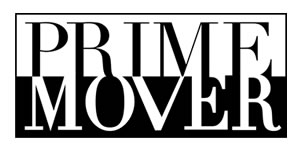Training and Advice That Improved Janssen Cilag’s Working Relationships with Health Care Providers in the European Union
 An important product provided by Janssen Cilag to health care providers throughout Europe is a medicine used in the treatment of certain chronic and life threatening diseases. Sales of this medicine to physicians and hospitals world wide for millions of patients were significantly reduced after publication of a study indicating that a few hundred patients in recent years might have experienced serious reactions from use of the medicine. Janssen Cilag notified physicians of the concern and, following the Credo of its parent company, Johnson & Johnson, took strong measures against its financial interest to investigate and eliminate any possible problem with this medicine. Nonetheless, the reputation of the medicine had been damaged and many health care providers switched to alternate forms of treatment.
An important product provided by Janssen Cilag to health care providers throughout Europe is a medicine used in the treatment of certain chronic and life threatening diseases. Sales of this medicine to physicians and hospitals world wide for millions of patients were significantly reduced after publication of a study indicating that a few hundred patients in recent years might have experienced serious reactions from use of the medicine. Janssen Cilag notified physicians of the concern and, following the Credo of its parent company, Johnson & Johnson, took strong measures against its financial interest to investigate and eliminate any possible problem with this medicine. Nonetheless, the reputation of the medicine had been damaged and many health care providers switched to alternate forms of treatment.
PrimeMovers professionals had been teaching negotiation within Johnson & Johnson and advising their negotiators for several years. When this problem arose, it became one of the focal points of instruction about negotiating good working relationships and trustworthy, interest-based agreements with health care providers and authorities. Janssen Cilag negotiators began applying PrimeMovers training and advice and soon got results.
For example, in one European country, as a direct result of using the seven element tools, a negotiation team successfully gained the commitment of a highly esteemed hospital to switch their patients from an alternate medicine back to that of Janssen Cilag. Since the problem became a concern, this was the first health care provider in the country ever to switch back to Janssen Cilag’s medicine and the first health care provider to select this medicine from among all other choices available. Key to this result were the Janssen Cilag negotiators’ ability to build good working relationships, promote clear understanding of interests, demonstrate flexibility by proposing many good options, and defend the resulting proposed agreement internally with well-developed standards of fairness. This first of many such successful negotiations was alone worth over €1 million annually.
